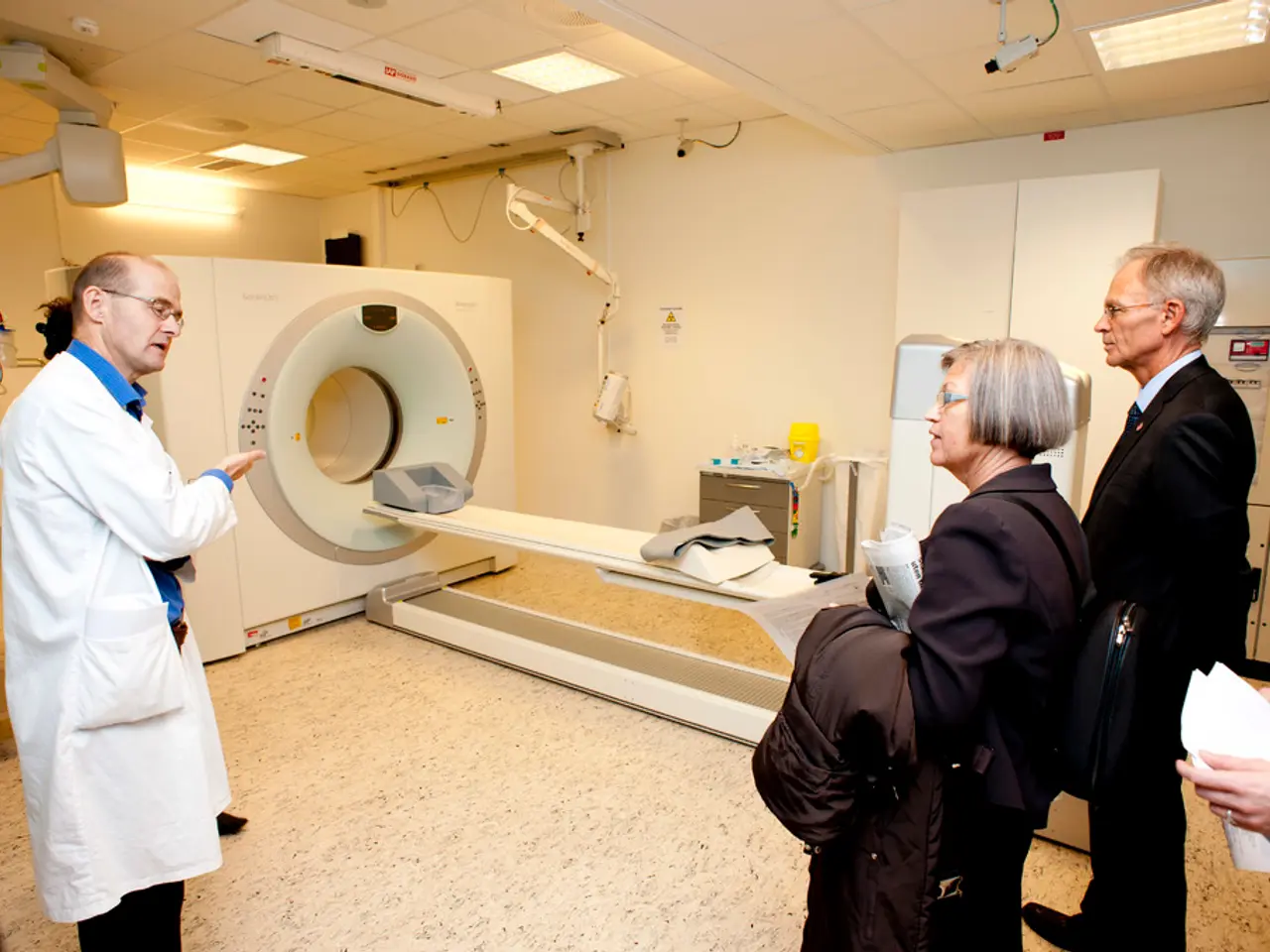Artificial Intelligence Transforms South Africa's Healthcare Landscape
South Africa is spearheading the African continent's AI-driven revolution in healthcare, with a notable emphasis on clinical decision-making and related applications. According to recent reports, South Africa is outpacing the global average in using AI for clinical decision support, demonstrating strong integration of AI tools that improve diagnosis accuracy, early risk detection, real-time patient monitoring, and automation of decision-making [1][4].
In the realm of remote patient monitoring, AI-driven systems help track patients continuously, alerting healthcare providers to changes in real-time. This support for managing chronic diseases and facilitating preventive interventions optimises clinical outcomes [1].
South Africa is actively exploring and deploying AI technologies in diagnostics. For instance, PATH recently launched a major study involving 9,000 participants across Africa, including South Africa, to evaluate how AI—especially large language models (LLMs)—can assist primary care clinicians in diagnostic decision-making [5]. Additionally, AI tools like AISHA, an LLM-based healthcare assistant, are being developed locally to synthesise and update clinical guidelines for frontline providers, enhancing decision accuracy and reducing clinician cognitive load [2].
Beyond direct clinical applications, AI is also used to improve personalised care by analysing patient histories, genetics, and lifestyle factors to tailor treatments and predict risks. At the healthcare system level, AI optimises resource allocation by forecasting patient admissions and staffing needs, which is impactful given South Africa's infrastructure and workforce constraints [1].
While adoption is robust, responsible integration is emphasised, balancing innovation with regulatory and ethical concerns around data privacy, AI explainability, and social equity to ensure sustainable benefits [1][3]. Nearly two-thirds of these leaders have already rolled out remote patient monitoring solutions in mental health, postoperative recovery, preoperative preparation, chronic disease management, and elderly care [4].
However, the lack of enforceable AI-specific regulations in Africa adds another layer of risk in integrating AI into medical systems. The South African healthcare system faces persistent challenges, including an ongoing shortage of medical professionals and infrastructure issues like frequent power cuts [4].
Despite these challenges, these technologies not only improve clinical accuracy but also alleviate pressure on an overstretched workforce in South African healthcare. The journey of AI implementation in healthcare won't be without its challenges, but the rewards promise to be well worth the effort.
Regional initiatives, such as those in Kenya and Uganda, promoting cross-border health data sharing are essential steps toward harmonized AI development [4]. The African Union also has an opportunity to create continent-wide standards for AI use in clinical and research settings through initiatives like the African Medical Devices Forum [4].
In summary, South Africa is leading AI adoption in healthcare across various application areas:
| Application Area | Adoption & Usage Details | |-------------------------------|--------------------------------------------------------------------| | Clinical Decision Support | 57%-61% adoption in treatment planning, monitoring, preventive care| | Remote Patient Monitoring | Real-time AI monitoring for early risk detection and management | | Diagnostics | Large-scale AI studies underway; tools like AISHA enhancing diagnostics| | Personalized Care & Operations | AI used for risk prediction, tailored treatments, and resource management|
These advances position South Africa at the forefront of AI-powered healthcare innovation on the continent [1][2][5].
- Embracing AI-driven technology, South Africa is revolutionizing healthcare, particularly in clinical decision-making and related applications, outpacing the global average in AI integration for clinical decision support.
- In the mobile health sector, AI-driven systems enable continuous patient monitoring, providing real-time alerts to healthcare providers for effective chronic disease management and preventive interventions.
- South Africa is also exploring AI in diagnostics, with projects like a major PATH study utilizing AI, including large language models, to aid primary care clinicians in diagnostic decision-making.
- By analyzing patient histories, genetics, and lifestyle factors, AI technology can personalize care, tailoring treatments and predicting risks to optimize healthcare.
- At the infrastructural level, AI aids resource allocation by forecasting patient admissions and staffing needs, proving to be particularly impactful given South Africa's existing infrastructure and workforce constraints.
- Despite the lack of enforceable AI-specific regulations in Africa, the benefits of AI implementation in healthcare are clear, as these technologies not only improve clinical accuracy but also lessen pressure on the overstretched healthcare workforce.




